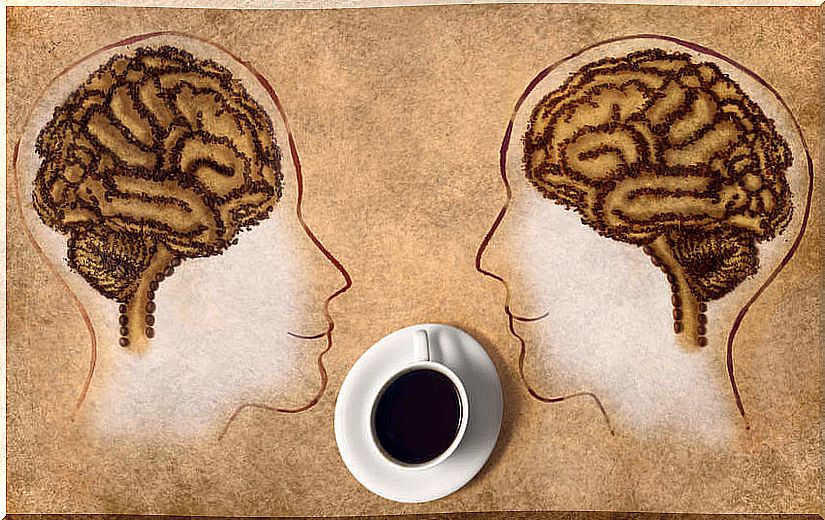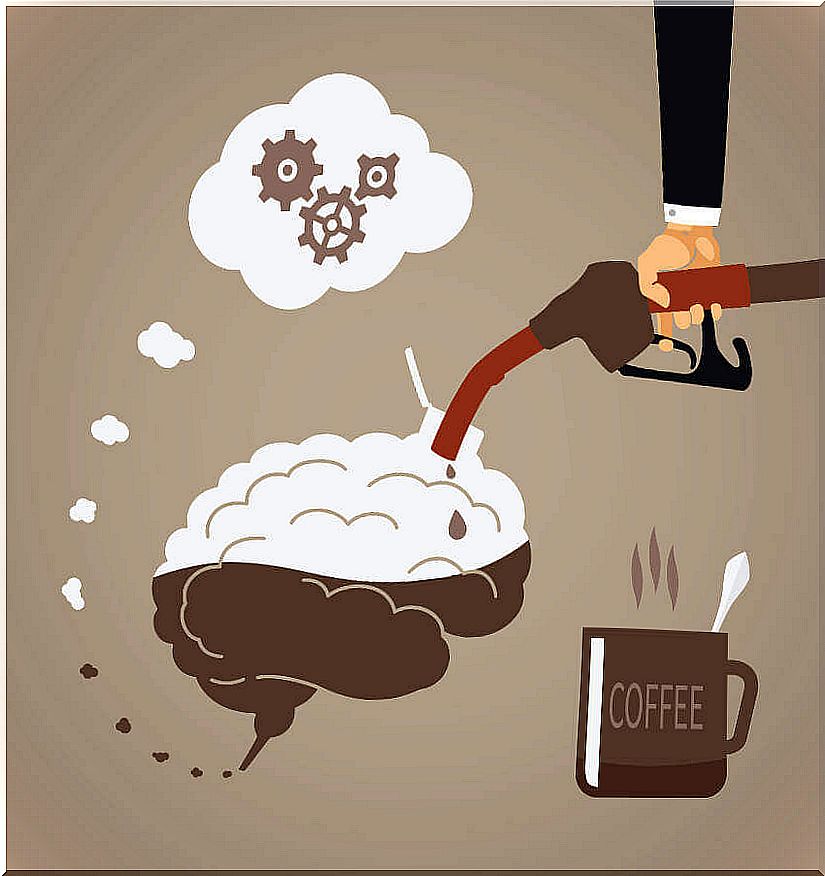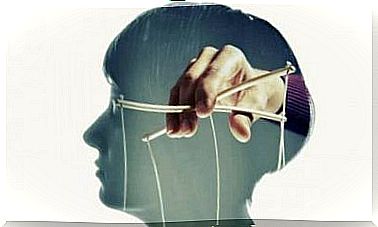How Does Caffeine Help Our Brain Think?

Caffeine is known as a stimulant drug that helps improve our thinking skills. It is believed to block adenosine receptors, which the neurotransmitter in question normally uses to reduce brain activity. Caffeine also affects the function of other neurotransmitters, such as norepinephrine, dopamine, and acetylcholine. All of these neurotransmitters affect both our state of mind and our thinking skills.
Various studies show that caffeine increases our performance in various areas, for example we are more vigilant, responding and processing information faster. Many factors work together here, among which daily caffeine consumption plays a decisive role.
A large number of scientists have worked on the question of whether the effects of caffeine on our intellectual capacity are really responsible for increased brain activity and can contribute in the long term to the prevention of degenerative brain diseases such as Alzheimer’s disease.
Indeed, there is a hypothesis that caffeine consumption in middle age can reduce the likelihood of developing Alzheimer’s disease later. The fact that this substance can not only increase cognitive thinking, but also contribute to the prophylaxis of degenerative diseases, sounds promising. This is definitely good news for coffee lovers.
Influence on cognitive thinking
According to a study conducted by Johns Hopkins University (Baltimore, Maryland, USA) and published in 2014, caffeine consumption improves our memory. A total of 160 women and men took part in the study and were shown a series of pictures. After five minutes, they were given a tablet containing 200 mg of caffeine or a placebo.
After 24 hours, it was checked to what extent the test subjects could remember the series of images. Those who received a caffeinated tablet had better results than those who received the placebo. The scientists stated that the substance increased the subjects’ thinking skills, and the better results were not based on increased concentration.
On the other hand, the journal Neuroscience found that older people performed better than their peers who did not consume caffeine.
In another study it was found that the work performance of adults increases enormously when they consume caffeine, but only in extroverted people. This surprising result was checked in a follow-up study. It could be shown that the memory and thinking abilities of the extroverted, caffeine consuming subjects were increased. At the same time, there were indications that caffeine shortened reaction times and improved the absorption of new information.
Another study looked at taking caffeine and glucose at the same time. Subjects who consumed both substances showed improved concentration, quicker comprehension, and increased verbal memory when compared to study participants who received caffeine or glucose, or even just a placebo.
According to further research, caffeine consumption also increases spatial memory. Subjects were compared who consumed caffeine at different rates. According to the hypothesis, caffeine consumption improved the ability to create mind maps.
Interestingly, the participants who regularly consumed caffeine showed less good results in comparison than the participants who consumed this substance less often.

What kind of caffeine is the healthiest for our brains?
A study of women over the age of 65 who were at greater risk of developing a cognitive disorder such as vascular dementia due to cardiovascular disease showed us the long-term effects of caffeine. The relationship between caffeine intake and cognitive abilities was examined at regular intervals of 5 years.
It was found that women who consumed this substance through coffee performed better on the cognitive tests than those who consumed caffeine in the form of tea and cola or who generally consumed little caffeine.
Another study worth mentioning was only concerned with the effects of caffeine from energy drinks with a particularly high content of caffeine on the cognitive brain functions of adolescents between the ages of 15 and 18 years. The research showed that although these drinks tend to increase comprehension, significant differences between energy drink users and a placebo group with regard to cognitive brain functions could not be determined.
Studies of the relationship between caffeine consumption and Alzheimer’s disease prophylaxis
An animal study published in 2009 shows that caffeine reduces the deposition of beta-amyloid and thus prevents the death of brain cells and thus prevents a deteriorating memory performance.
Another study carried out in 2011 shows that certain amounts of coffee can not only protect against diseases such as Alzheimer’s, but also prevent cardiovascular diseases.
Another very interesting study published in The Journal of Alzheimer’s Disease in 2013 found that rats had better brain activity and less memory loss after consuming caffeinated water .

The effects of caffeine on people with mild cognitive impairment and an increased risk of Alzheimer’s disease
Caffeine consumption is also related to cognitive stability. Patients with a mild cognitive disorder, a memory disorder, are at an increased risk of developing Alzheimer’s disease. Nevertheless, in a study published in the Journal of Alzheimer’s Disease in 2012, researchers informed that an increased concentration of caffeine in the blood could not be determined in any of the test subjects and therefore cannot be responsible for this connection.
Conclusions
We have only been able to address a few studies here, but there is still a lot of research to be done on caffeine and its effects on thinking skills and other cognitive brain activities. While the results vary widely, it seems like they all agree on one fact – caffeine consumption stimulates cognitive brain functions. Some studies suggest that where this substance comes from, for example coffee, is crucial.
Caffeine has many other effects on our body. Both caffeine alone and coffee can be of benefit to us, but if we ingest too much, the effect can quickly turn into the opposite. Under certain conditions, consuming caffeine, even in small amounts, can be harmful to health.









